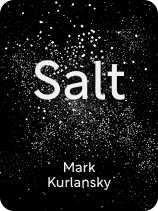

This article is an excerpt from the Shortform book guide to "Salt" by Mark Kurlansky. Shortform has the world's best summaries and analyses of books you should be reading.
Like this article? Sign up for a free trial here.
What is the importance of salt in history? What role did salt play in economics and politics?
In Salt, Mark Kurlansky argues that salt industries have shaped economies and politics for millennia. This is because of the salt trade, empires’ control over salt, and wars over salt.
Let’s check out the importance of salt in history’s defining events.
Salt’s Economic and Political Significance
Salt industries throughout history may have damaged the environment, but leaders of salt industries believed this damage was worth it—because salt production was extremely lucrative. Kurlansky argues that for most of human history, salt had both economic and political significance due to the profitability of the salt industry.
Here’s a look at the importance of salt in history.
Theme 1: The Salt Trade Was Widespread
According to Kurlansky, salt was one of the first commodities traded over vast distances. For instance, around 2800 BCE, Egyptians exported salted fish to the Phoenicians, who occupied the North African coast. The Phonecians then traded Egyptian salted fish and North African salt with the rest of the Mediterranean.
Why was salt such a valuable, widely traded commodity? Kurlansky provides two reasons. First, salt was precious because, as we explored earlier, all humans and livestock need it to survive.
Second, salt was widely traded and highly valued because not all regions had easy access to this mineral. Salt industries arose where it was easy to harvest salt, such as areas with plenty of coastlines (for sea salt production). These regions traded with areas that had less access to salt and therefore considered salt highly valuable, such as northern countries whose climates were too rainy or dark to efficiently evaporate water from sea salt.
Theme 2: Control Over Salt Strengthened Empires
Kurlansky argues that because salt was so profitable, many empires expanded their territories, grew rich, and increased their power by controlling salt industries. For instance, in ancient China, the Qin dynasty instituted a state-controlled monopoly over salt. Revenue from their salt monopoly funded armies and defensive structures such as the Great Wall of China.
Empires also strengthened their economic power by colonizing areas that were rich in salt. For example, in the 17th century, Britain harvested and profited off salt from its Caribbean colonies, such as Bermuda. It traded this salt with North Americans in exchange for salt cod. Enslavers fed this salt cod to enslaved Caribbeans working on sugar plantations.
(Shortform note: In Guns, Germs, and Steel, Jaren Diamond argues that Europe’s advanced technology, including salt harvesting technology, was a factor leading to their conquest of the Americas. According to Diamond, European societies were technologically advanced because they had geographic advantages such as a temperate climate. These advantages led to ample food production, causing population booms, the development of industries, and new inventions. Critics claim that this argument makes it seem inevitable for geographically-advantaged regions like Europe to colonize. These critics accuse Diamond of downplaying the role that Europeans’ colonial and racist ideas played in their decisions to conquer the Americas.)
Theme 3: Power Struggles Over Salt Fueled Rebellions and Wars
Kurlansky makes clear that throughout history, people in colonized regions often resisted empires’ control over salt industries. They staged rebellions (which often turned into wars) to demand that empires grant them autonomy over salt production and profits. There are two examples of this: the role conflict over salt played in the American Revolution, and the role it played in the Indian Independence Movement.

———End of Preview———
Like what you just read? Read the rest of the world's best book summary and analysis of Mark Kurlansky's "Salt" at Shortform.
Here's what you'll find in our full Salt summary:
- The role salt played in driving innovation, building empires, and provoking rebellions
- Why salting food isn’t just about improving its flavor
- How salt played an important role in several independence movements






